Faster mooring for smoother ferry operations
Cavotec’s MoorMaster™ system brings automation, efficiency, and safety to Ro/Pax, RoRo, and ferry terminals around the world. By replacing traditional mooring lines with automated vacuum technology, MoorMaster™ secures vessels in seconds, reducing turnaround times and enabling more efficient vessel scheduling.
Shorter mooring times mean more time for passenger and vehicle operations, allowing ferries to depart on schedule or sail at lower speeds — cutting fuel consumption and operational costs.
In addition to faster turnarounds, MoorMaster™ also helps reduce emissions, noise, and vibrations in port areas, making it ideal for terminals located close to urban centres. The system improves safety by eliminating manual line handling, creating a cleaner, quieter, and safer port environment for both passengers and crew.
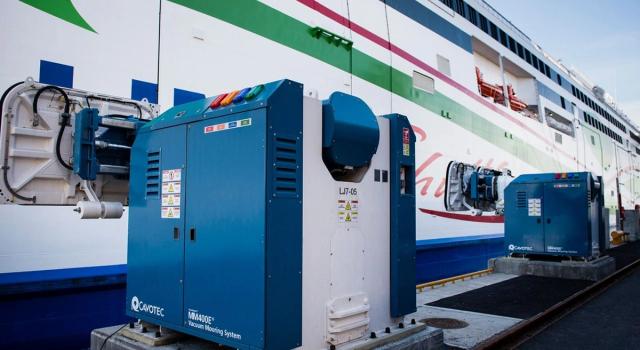
Automated mooring for RoPax, RoRo and Ferry Terminals
Faster turnarounds
Moor vessels in 30 seconds and release them in 10, boosting berth availability and enabling more ship calls.
Reduced infrastructure needs
Shorter quays and fewer mooring dolphins are required, freeing up valuable waterfront space and lowering capital costs.
Less upkeep
Automatic mooring reduces wear on fenders and seabeds, extending asset life and cutting maintenance costs.
Cleaner air
Lower emissions in and around terminals improve air quality, particularly in ports located close to city centers.
Proven Performance in RoPax and RoRo Ports
Discover how ports around the world are using MoorMaster to speed up operations, improve safety, and reduce emissions.
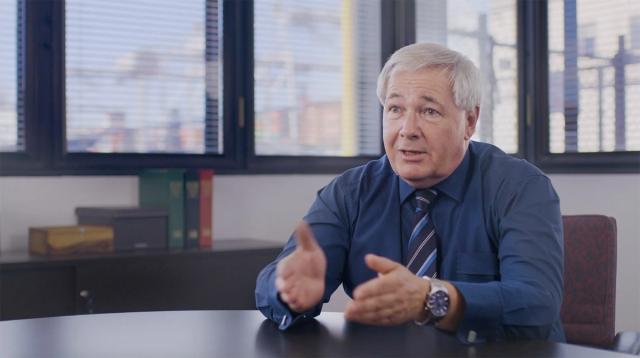
"It’s been a long journey with the MoorMaster systems and Cavotec, 17 years. I can say they have been extremely consistent over the time and Cavotec’s support for the systems has been exemplary"
General Manager Marine, SeaRoad

"Those extra minutes that you save in mooring and unmooring operations leads the vessel to be able to go a little bit slower overseas which reduces in turn the fuel burn and therefore lowers emissions. Actually by quite a lot."
Head of Sustainability, Port of Helsinki
References
Port of Helsinki, Finland (RoPax)
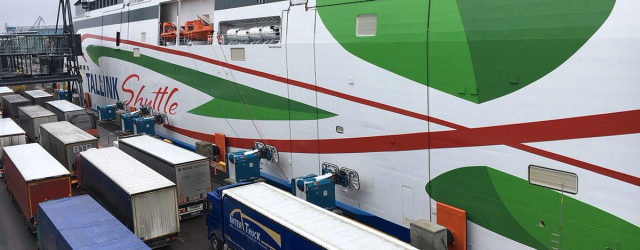
Ferries LOA up to 212m
Moorings: Nine per day
Challenge
- Ferry route with large 200+ m LOA vessels mooring six times per day
- Slow and labour-intensive mooring implies high operational expenses
- Port committed to reducing the carbon footprint of harbour operations
Solution
- MoorMaster™ system installed on one berth in 2016
- Second MoorMaster™ system installed on a neighbouring berth in 2020
Key benefits
Fast mooring in less than 30 seconds drives:
- Significant reductions in fuel consumption
- Improved local air quality and reduced noise pollution
- Improved turn-around flexibility for the ship operator
- Resources freed up as fewer personnel onshore and onboard required for mooring
"An auto-mooring system decreases the time taken for vessel mooring and release. The time saved amounts to significant reductions in fuel consumption, improved local air quality and reduced noise pollution.”
Sari Nevanlinna – Vice President Passenger Services, Port of Helsinki
Wightlink, UK (RoPax)
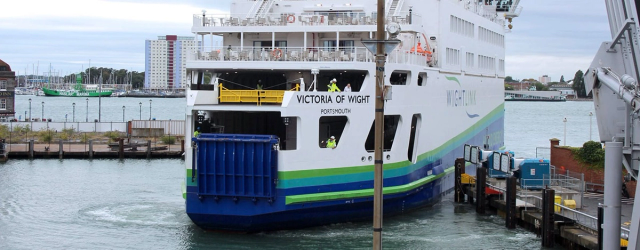
Ferries LOA 62-89m
Moorings: 30/day
Challenge
- High frequency ferry route with 30 moorings per day
- Introduction of new, longer, vessel meant pier needed to be extended at considerable expense for safe mooring with ropes
Solution
- MoorMaster™ units mounted on pier
- No pier extension needed as MoorMaster™️ system only needs to attach to the parallel sideboard of the vessel
Key benefits
- Large capital expenditure avoided as no pier extension was needed
- Resources freed up as less staff is tied up in mooring
- Fuel savings as reduced turn-around time allows slower cruise speed
SeaRoad, Australia (RoRo)
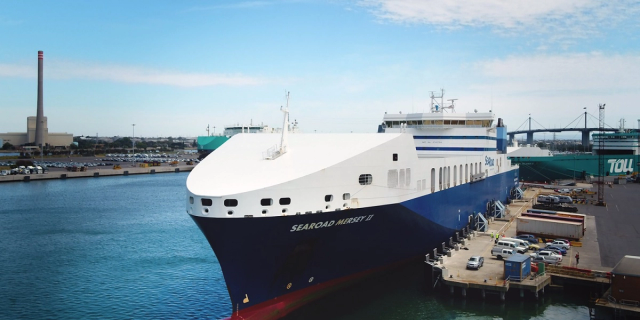
RoRo LOA 182 to 210m
Moorings: Two per day
Challenge
- Personnel safety concerns due to hazardous rope-mooring
- Slow and labor-intensive mooring result in high operational expenses
- Introduced new, larger vessels in port twice since initial introduction of MoorMaster system in 2003
Solution
- MoorMaster™ system with four units at each of the two ports installed in 2003
- Increased capacity in 2018 by installing one extra MoorMaster™ unit at each port to cater to new longer vessel
- Increasing capacity again in 2021 by integrating new MoorMaster NxG units at each of the two ports
Key benefits
- Safety concerns fully addressed
- Improved flexibility in port turnaround
- New vessels introduced with no need for expensive and time-consuming berth extensions
"Over the past 17 years, our MoorMaster systems have been extremely consistent, and Cavotec’s support exemplary. We’re extremely excited to be the first company to install the next generation of MoorMaster as we introduce larger tonnage to meet our customers’ demands.”
Stuart Michael – General Manager Marine, SeaRoad
Samsø Rederi, Denmark (RoPax)
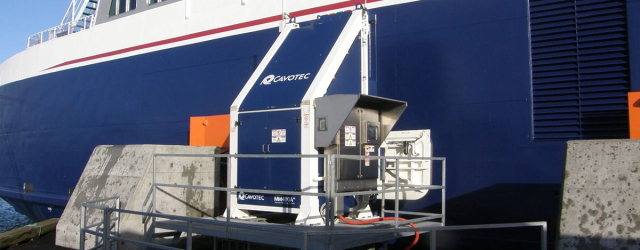
Ferries LOA 99m
Moorings: Seven per day
Challenge
- Ferry routes with 100m LOA vessel mooring seven times per day
- Quay walls shorter than the ferry
- Slow and labour-intensive mooring implies high operational expenses
Solution
- MoorMaster™ system installed at two berths in 2015
- Former units removed by previous operator and replaced with new
Key benefits
Fast mooring in less than 30 seconds drives:
- Improved efficiency and flexibility in port turnaround
- Reduced need for maintenance of seabed
- Resources freed up as no personnel needed for mooring onshore
- Short quay walls did not have to be extended
Molslinjen, Denmark (RoPax)
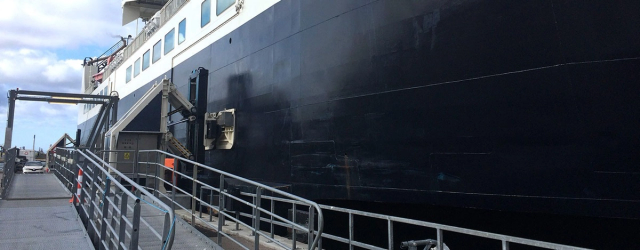
Moorings: Five to -18/day
Ferries LOA 99m
Challenge
- Ferry routes with 100m LOA vessels mooring six-18 times per day
- Quay walls shorter than the ferries
- Slow and labour-intensive mooring implies high operational expenses
Solution
- MoorMaster™ system installed at two berths in 2009 and moved to another site in 2015 when concession on old route was not renewed
- MoorMaster™ systems installed at two other berths in 2012
Key benefits
Fast mooring in less than 30 seconds drive:
- Improved efficiency and flexibility in port turnaround
- Reduced need for maintenance of seabed
- Resources freed up as no staff is tied up in mooring onshore
- Short quay walls did not have to be extended
"Cavotec’s MoorMaster™ systems represent a major asset for our port developments by speeding up our operations and turnaround times, which in turn, help us improve the reliability and quality of service for the benefit of our customers. This mooring system is a unique and innovative technology that has been adopted by our company in order to support our strategy of integrating more efficient and reliable systems for our ferry services.”
Hans Henrik Simonsen – (COO, Molslinjen A/S)
Interislander, New Zealand (RoPax)
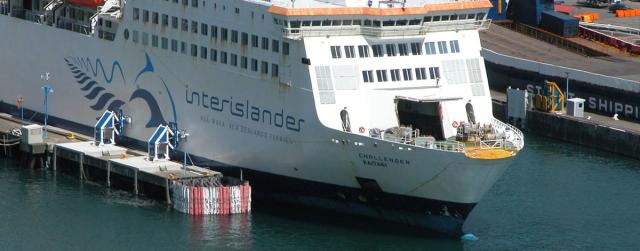
Moorings: 3/day
Ferries LOA 180-181m
Challenge
- New vessel too long for the existing berth
- Not enough time to extend the wharf before vessel due to enter service
Solution
- Two MoorMaster™ units mounted on existing quay to avoid extension
- MoorMaster™ system delivered and commissioned before new vessel arrived
Key benefits
- Cost of berth extension avoided
- Vessel could enter service as soon as it arrived in New Zealand
Teso, The Netherlands (RoPax)
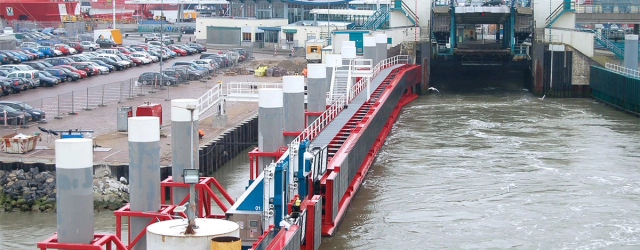
Moorings: 16/day
Ferries LOA 110-130m
Challenge
- High frequency ferry route in the Netherlands with 16 moorings per day
- High fuel consumption and seabed erosion as vessels thrusted during port stay
- Complaints from municipality on air quality and emissions
Solution
- MoorMaster™ units mounted on a floating pontoon by the quay
- Ship moored at the push of a button allowing for the engine to start idling
Key benefits
- Reduced fuel consumption and reduced engine wear due to reduced mooring times
- Reduced emissions and improved air quality
- Improvements in crew working conditions due to reduced engine noise
Port of Turku, Finland (RoPax)
Ferries LOA: up to 222m
Challenge
- Ferry route with large 200+ m LOA vessels mooring twice a day
- Desire for automation from ship operator side
- Port committed to reducing the carbon footprint of harbour operations
Solution
- MoorMaster™ system installed on one berth in 2020
Key benefits
Fast mooring in less than 30 seconds drives:
- Significant reductions in fuel consumption
- Improved local air quality and reduced noise pollution
- Improved turn-around flexibility for the ship operator
- Resources freed up as fewer personnel onshore and onboard required for mooring
Port of Tallinn, Estonia (RoPax)
Moorings: Nine per day
Ferries LOA up to 212m
Challenge
- Ferry route with large 200+ m LOA vessels mooring 8 times per day
- Desire for automation from ship operator side
- Port committed to reducing the carbon footprint of harbour operations
Solution
- MoorMaster™ system installed on two berths in 2020
- Loop closed as the ship operators now have automated mooring in both end of the route increasing the number of benefits
Key benefits
Fast mooring in less than 30 seconds drive:
- Significant reductions in fuel consumption
- improved local air quality and reduced noise pollution
- Improved turn-around flexibility for the ship operator
- Resources freed up as less staff is tied up in mooring onshore and onboard